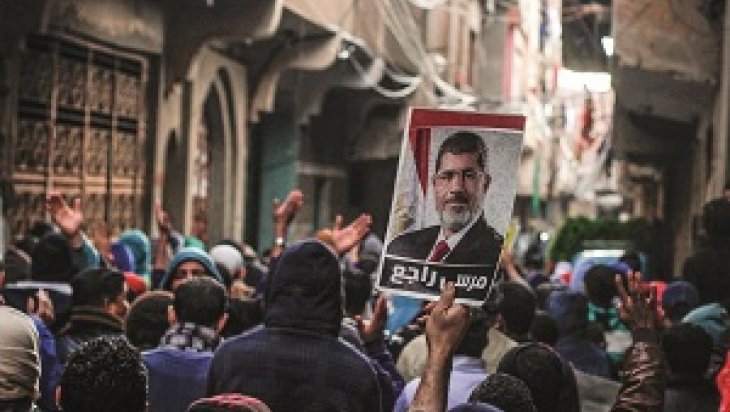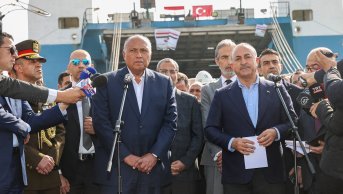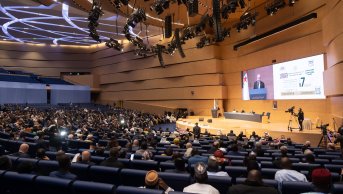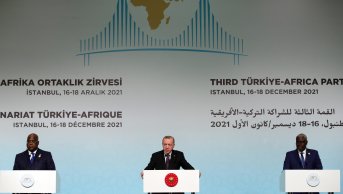Muslim Brotherhood and the State in Egypt After the July 2013 Military Coup

Military coup that took place on July 3rd, 2013 was a turning point for the Muslim Brotherhood that has the largest social base in the country. With the leadership of Abdel Fettah Al-Sisi who was the mastermind of the coup, Egyptian government carried out an unprecedented oppression policy towards Muslim Brotherhood. During this time, not only the leadership of the group and the members of the movement but also its organizational capacity had been forced to terminate. While the government focused on the Muslim Brotherhood’s activities in fields of education, healthcare and the religion, public figures that were affiliated with to the movement were punished because of their relation with the movement.
As the first step of this policy, in the following period of the military coup a committee was established in order to control the assets that belong to Muslim Brotherhood.After finishing its initial examination In December 2013 the committee decided to close hundreds of school, healthcare organization, and religious education organization.The committee also changed administration of many institutions that were under the control of the movement. In an attempt to terminate the entire effect of the movement members in the institutions, public figures that were loyal to regime and intelligent officers were appointed to the administrations of the institutes that belonged to the Muslim Brotherhood.
Committee maintained its supervision against the movement in the following period. During this time, committee confiscated assets of the establishments that have connection with the Brotherhood. Assets of Muslim Brotherhood affiliate businessmen and social figures had been also confiscated. In addition to this state policy against the Muslim Brotherhood, institutions that were loyal to Sisi regime such as Al-Azhar were also involved in anti-Ikhwan campaign.Muslim Brotherhood-affiliate imams who were working voluntarily in several mosques were forced to leave from their positions. Additionally, in order to prevent Muslim Brotherhood members to continue their duties as imams, Azhar brought the condition of their approval for working as imam in any mosque throughout Egypt.
Scope of oppressive policies that were carried out towards Muslim Brotherhood was not just to get things under control temporarily, but rather give a substantial damage to the Muslim Brotherhood organization. Harsh policies of Sisi regime demonstrate that the government aimed to deprive Muslim Brotherhood of all the resources they had throughout the 80 years of its existence. These findings bring with the reality that future of revolution process in Egypt cannot be hold separate from the future of Muslim Brotherhood. As a matter of fact, revolution process in Egypt during 2011 was an initiative to revolutionize the codes of established regime and prompt a social and political transformation.
The oppression policy that was carried out towards Muslim Brotherhood in Egypt was a product of a much greater initiative that aimed to fail the revolutionary process. It can be argued that there are primarily two domestic and two externalfactors behind this policy.The domestic actors are Egyptian Army and the remnants of the Hosni Mubarak era.
After the coup d’état, it can be seen that military regime in Egypt was the main operator of the oppressive policies towards Muslim Brotherhood. The main motive of the Sisi regime in their pursuit of destroying Muslim Brotherhood politically was to prevent the group from being a competitive in the future political life. During this oppression period, regime did not only fought against the Muslim Brotherhood, but several liberal and socialist groups as well. All these parties were subjected to oppressive policies and they were excluded from the political life. By excluding most of the domestic political forces from the competition the Egyptian army aimed to protect their privileged position in country’s political, economic and social life. Therefore the military regime wanted to make sure that it does not share power with any other group in the country.
One of the reasons of the intensity of the oppression that was carried out towards Muslim Brotherhood in Egypt was the fact that there were still Mubarak regime actors inhigh-level positions such as intelligence, security and judiciary. Especially the judicial institutions and the security units played an important role and became the facilitator by working intensively in realization of the oppression towards Muslim Brotherhood. In accordance with the orders of intelligence units, thousands of dissents that were member of Muslim Brotherhood were arrested and jailed during the public demonstrations againstSisiregime. Almost every court in all cities pulled their weight by starting judicial processes towards people who participated demonstration against military coup. Judicial bodies deliberately extended judicial processes towards these individuals and thousands of people were forced to remain in prison without even receiving a sentence.
During this period, there were primarily twoexternal actors, namely Saudi Arabia and the United Arab Emirates, that supported Sisi regime in their fight against the Muslim Brotherhood. Especially during the King Abdullah period Saudi Arabia worked relentlessly to fail Muslim Brotherhood government in Egypt. Riyadh supported anti-Ikhwan actors in Egypt and worked with them against the group. Similarly, the United Arab Emirates became one of the most important supporters of Sisi regime in order to break Muslim Brotherhoods’ power as they considered them as the greatest threat in the region.
Finally, Sisi regime’s anti-Ikhwan policies received support from the Western countries as well. Particularly the USA and many European countries supported Cairo in its fight against the Muslim Brotherhood movement. The most obvious sign of this support was the Washington’s unresponsiveness towards the killing thousands of Muslim brotherhood members by the security forces of the Sisi regime. Even after the coup period the US administration, maintained their military and financial support in Egypt and did not show any reaction to the human right violations of the military regime. US military support to Egypt increased especially during the years 2015 and 2016. In addition to military aid to Egypt, the US lawmakers put pressure on the US branch of the Muslim Brotherhood. In February 2016, a bill to dedicate Muslim Brotherhood as terrorist organization was accepted by the US House of Representatives.
Likewise, members of the European Unionalso kept their silence towards the human rights violations of Sisi regime against political opponents, particularly Muslim Brotherhood members. In order to show their support to Sisi regime, European countries initiated economic and political agreements with Cairo. France, Germany, Italy and England’s policies towards Sisi regime were particularly important. France agreed to sell Egypt fighter jets and warplanes that cost around 10 billion US dollars. This showed that France’s human right advocacy remains only in discursive level. ItalianENI, German Siemens, Britain’s BP rewarded Sisi administration for their oppression against the Muslim Brotherhood movement and other revolutionary groups by signing agreements that worth billions of dollars. European Union also did not react enough to Ihvan leaders’ getting death penalty or civilians’ serving years in jail without even getting sentenced.
Oppression towards Muslim Brotherhood movement in Egypt after the coup can be seen as a state policy. During this period both domestic and external actors played a major role. In addition to this, Muslim Brotherhood whose vast majority of leaders have been put in jails, several members had to leave the country and almost entire assets have been seized, was subjected to a severe pressure from the Sisi regime.As a result of these policies of Cairo, activities of the Muslim Brotherhood regressed significantly.
In such conditions, the movement now needs to reevaluate its campaign strategy. In this regard, it is of vital importancefor the Muslim Brotherhood that support from Turkey and Qatar must continue. Muslim Brotherhood movement is no longer Egypt’s internal affairs, it took on dimension that regional and possibly global dynamics has to be involved. It’s of great importance that projections in terms of movement’s future have to be made in this framework.
This article was published in Ortadoğu Analiz journal with the title of "Muslim Brotherhood and the State in Egypt After the July 2013 Military Coup”












